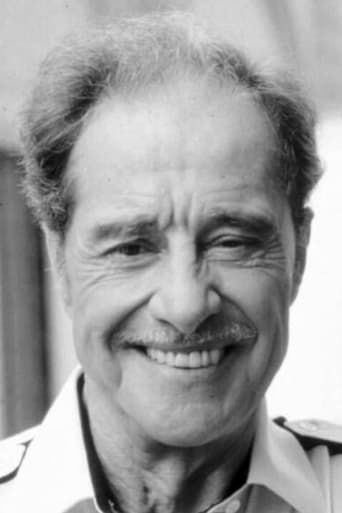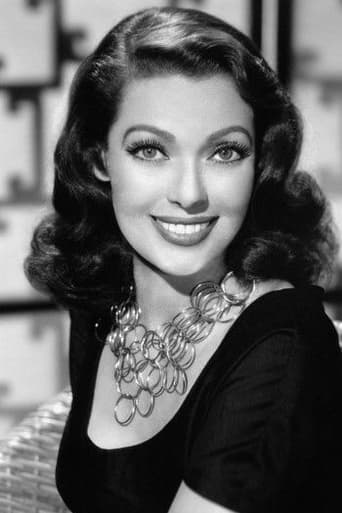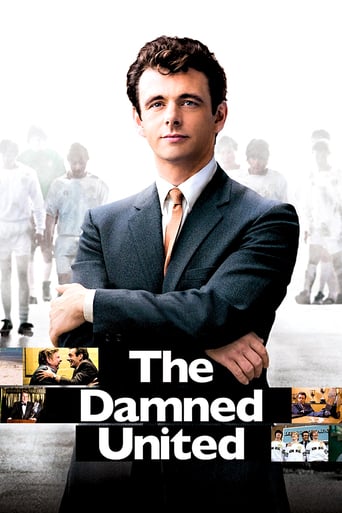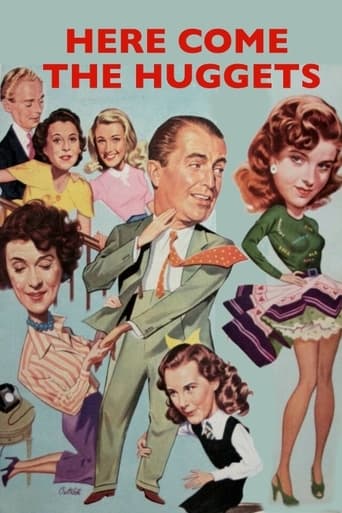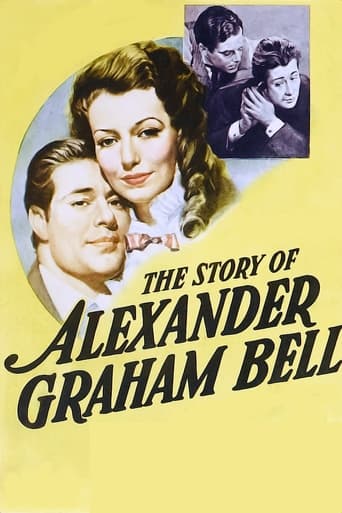

The Story of Alexander Graham Bell (1939)
Alexander Graham Bell falls in love with deaf girl Mabel Hubbard while teaching the deaf and trying to invent means for telegraphing the human voice. She urges him to put off thoughts of marriage until his experiments are complete. He invents the telephone, marries and becomes rich and famous, though his happiness is threatened when a rival company sets out to ruin him.
Watch Trailer
Cast


Similar titles
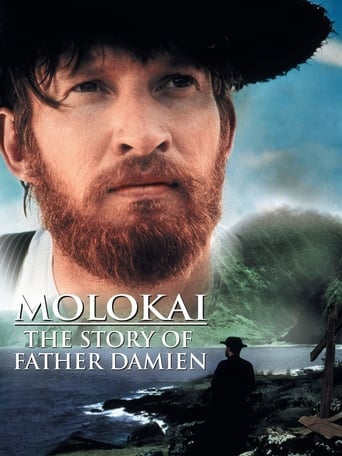
Reviews
hyped garbage
Fun premise, good actors, bad writing. This film seemed to have potential at the beginning but it quickly devolves into a trite action film. Ultimately it's very boring.
The film's masterful storytelling did its job. The message was clear. No need to overdo.
Great example of an old-fashioned, pure-at-heart escapist event movie that doesn't pretend to be anything that it's not and has boat loads of fun being its own ludicrous self.
1939 was indeed a magical year for Hollywood, and this classic biop of one of American's most celebrated inventors during his most interesting period is one of the less remembered highlights. I was very surprised at the rather few reviews at this site, compared to the several hundred reviews of "The Grapes of Wrath", released the following year. Both were shot in high quality B&W. Although it much simplifies, and often grossly fictionalizes, the details relating to the invention of and subsequent patent battles relating to the first practical telephone, it definitely succeeds as a vibrant theatrical presentation of Bell and his associates during this exciting time period. Bell makes a particularly appealing subject for this sort of film because of his primary interest, during this period, in teaching the deaf(including his future wife) to communicate by visuals and speech training(although he was very opposed to a special sign language!). Also, his status as a poor(overly emphasized) lone inventor, trying to scoop some well financed competitors.Ironically, the invention of an auditory means of instantaneous long distance communication served to further isolate the deaf from mainstream society, being at least partially dependent on visual communication. The profoundly deaf would have to await the advent of relatively cheap FAX machines and PCs to participate directly in relatively fast long distance communications, other than using the telegraph...The viewer should also be aware that it was Tom Edison's subsequent invention of the carbon-based transmitter-receiver that finally provided clear speech over long distances, and thus greatly increased the utility of the telephone. The casting was near perfect. The classy, infectiously hyperactive, Don Ameche and gorgeous, always empathetic, Loretta Young had played husband and wife before, in "Ramona", and were a very charismatic match in this film. Loretta mostly just had to look lovely, supposedly learn to communicate using lip reading, and be continuously supportive of Bell's 'crazy' inventive obsessions. Having her real sisters play her stage sisters was a nice embellishing touch.Some complain that Ameche constantly grossly overacted. But, to me, his hyperenthusiasm about whatever he was doing translated into greater interest in the film proceedings. He personifies the obsessive enthusiasm of the inventor or scientist who feels he is on the verge of a great discovery, as well as the dogged determination of the healer, who feels his efforts make a life-changing impact on his patients.Just as Dr. Watson was indispensable to Sherlock Homes. and Jim Watson partnered with Francis Crick in figuring out the structure of DNA, young(20-22y.o) Tom Watson was hired to make Bell's experimental efforts at an improved telegraph and telephone. Bell was not mechanically gifted, thus required such a person to make his ideas a practical reality. Some complain that Henry Fonda's Watson was too much the opposite of Ameche's hyperenthusiatic, sometimes nearly hysterical, Bell: laconic, frequently complaining and pessimistic. However, theatrically, Fonda's Watson serves to help balance Ameche's Bell, giving the audience a respite. He also served to articulate the many frustrations and sacrifices typically involved in trying to invent something revolutionary.The very familiar character actors Charles Coburn and Gene Lockhart play their usual roles as mature authority figures, serving as Bell's reluctant source of financing during this period, Coburn also playing Bell's future father in law. They are later characterized as risking their entire fortunes in financing Bell's patent war. Thus, they also achieve the status of heroes in this film. There is a villain in this story, in the form of competing inventor Eliza Gray and his supporting corporation :Western Electric, who file a patent infringement suit against Bell's fledgling company. Both filed a patent for very similar devices on the very same day, thus the assumption is that one must have stolen the idea from the other, but who did the stealing? Things look bad for Bell during most of the trial, but it's resolved in fictitious melodramatic style when Loretta unexpectedly reads a dated love letter from Bell to the court, then, oh, incidentally, reveals that it was written on the back of a diagram of his key thinking and breakthrough apparatus. Historically, Eliza Gray was no villain, but a competent inventor of other things. This trial segment afforded Ameche the opportunity to articulate a memorable impassioned plea not to allow well-healed corporations to bully poor individual inventors into giving up legal credit for their inventions. This speech reminds me of a number of other impassioned speeches in films of this era, such as those of Paul Muni , when playing Louis Pasteur, or Emile Zola, and Spencer Tracey, when playing Henry Stanley, or defending Clark Gable's character in "Boomtown", for example. Granted that this film was mainly about Bell's invention of a telephone. However, Tom Watson's essential contribution to this invention has been consistently downplayed, although the easy going Watson never seemed to care. Watson was actually much like Bell in that he easily got bored with a given lifestyle, thus periodically attempted to shed his skin. After a few additional years making all of Bell's early commercial telephones, he decided to play farmer for a few years, but soon grew bored with that. Then, he began making marine motors, and eventually built his company into the Fore River Ship and Engine company, one of the largest in the US. During a period of financial trouble, he quit this and tried his hand at being a geologist, after study at MIT. Not very successful, he then decided to become a stage actor and playwright, later adding public lectures on various topics, in his declining years. His last celebrated dealing with the telephone occurred in 1915, when he joined Bell in the symbolic first transcontinental phone conversation, thus commemorating their first , accidental, phone conversation in the lab. Incidentally, Bell disputed his claim, dramatized in the film, that this conversation was occasioned by Bell spilling acid on himself.
Don Ameche has the title role in "The Story of Alexander Graham Bell" in this 1939 film starring Henry Fonda, Loretta Young, Charles Coburn, Gene Lockhart, and Spring Byington.This movie was a big hit - it must have been, because in 1941's "Ball of Fire," Barbara Stanwyck teaches Gary Cooper slang and refers to the telephone as "the Ameche," as others have mentioned here. As far as how accurate the story is - for Fox, not bad at all. The background of Bell's teaching experience and family history of working with speech and sound is correct, he did have a demonstration of his new device, he did have patent problems, he did take on the little boy and Mabel as deaf clients to teach, he did teach finger-spelling, he did have patent problems, he did marry Mabel, their first child was a girl, and Mabel's father was one of his investors. The Fonda character, Watson, was also real, though Bell had two other assistants, and the scene where Bell finds out the telephone works when he calls for Watson is accurate. Also, Bell mentions a great interest in aeronautics in the movie - he indeed did a lot of work in aeronautics later on.Don Ameche does a great job as Bell. Before Tyrone Power appeared at 20th Century Fox, Ameche was set for many more lead roles; Power's popularity pushed him into second leads. If Ameche seems melodramatic in the courtroom scenes, that was the style of the day. He gives a serious, intense, and sincere performance. It's probably the role for which he's best remembered. Henry Fonda is wonderful - he's funny and relaxed, positively excellent. In another year, he'd be starring in his own movies. Loretta Young as Mabel is believable as well as lovely, and her sisters in real life -- Sally Blane, Polly Young, and Georgiana Young - play her sisters here.Gene Lockhart as Sanders is another standout in a poignant performance as a man who wants his deaf son to be able to speak. Charles Coburn plays Mable's no-nonsense, gruff father very well.Considering that the movie "Suez" is fiction from beginning to end, 20th Century Fox is to be commended for bringing so much real history into this film and making it so entertaining.
Alexander Graham Bell came from a family of elocutionists. His grandfather and father were both published on the subject. He trained also to become a teacher, but having a deaf mother, he came to desire more than just teaching.In his early stages of teaching, he begins by teaching a young mute boy (Bobs Watson) while being paid by the father of the boy (Gene Lockhart). The money he earns from this, he uses to work on first the telegraph, then the telephone.The mute boy's father is so pleased with the way his son can communicate using a special alphabet glove,that he introduces Bell to his friend (Charles Coburn) who has 4 daughters, including a daughter who became death after having scarlet fever when she was younger. The father kept speaking of his 'little girl'. Imagine Bells surprise when it turned out to be a grown woman (Loretta Young) who, along with her three sisters, play the roles of the business man's daughters.Mabel (Young) 'fell' for him at first sight as she accidentally runs into him when he is coming to their house, not realizing he is the man her father invited to help her. Thinking this business man is going to be able to help him finance the telegraph, he begins to tell him of his invention until the father says he wants Bell to help his daughter. They can talk of the invention another time.The two fall in love, with Young playing a woman who not only backs Alec's (Bell/Ameche) grand ideas and inventions, but encourages him not to give up hope and occasionally puts her foot down when it comes to him not giving up the idea of inventing the telephone and when Bell later is attacked by a firm who claim he stole their invention and sued Bell.Bell got this news right when it seemed things were going the best for him. Queen Victoria had agreed to wire the castle with the telephone and what the queen did was often imitated throughout the world! Plus Bell finds out he is to be a father. But he also gets a letter from his father in law that a company is suing him for copyright stealing.He determines to return to the States, fight the lawsuit with truth to defend not only his invention, but his father-in-law, his friend, the mute boy's father (both of whom backed him to the hilt on the telephone), his partner in experiments Watson(Henry Fonda) and for all inventors who are poor and have their ideas copyrighted, only to be stolen by those with less scruples and more money.When she hears how badly the trial is going due to lack of evidence, Bell's wife and mother come to the trial. It seems that for lack of available paper, Bell had written a love letter to his dear Mabel on the back of an important bit of evidence that could be the key to him winning the lawsuit and keep he and his partners from being robbed of his invention and going bankrupt.Interestingly, both Lockhart and Coburn also are important players in the story 'Edison, the Man' but with Coburn being the more sympathetic and Lockhart the heavy. In this one Lockhart is usually more sympathetic and Coburn usually more cynical. Both have added beards and mustaches that change the appearance to a degree. This film, I believe, was released first.Yes, it is likely that Hollywood may have embellished the biography a bit and why not? It is an inspiring film that shows that there is much hunger, pain and even delays in being married when someone follows their dream to invent. But it also is often well worth it if the inventor sticks with it. Of course it's no guarantee all stories will turn out as well as this one and, ironically, in "Edison, the Man", Edison also has to defend his invention of electricity in court.Not sure if anyone else caught it, but I think they did make one goof in the film. Towards the end, the mother of Bell's wife (Spring Byington) knocks on the door of the room Bell and his wife are in. I believe Bell may ask who it is, but when the mother says it's mom, Bell's wife (deaf) says 'come in Mom'. Either a clever guess on her part, or an error revealing that she can really hear. Nothing had been said (that I could see...)to show if he was somehow able to help her hear or to give her a clue as to who it was at the door.To the commenter that was deaf and asked about Young's character Mabel being born deaf or becoming it: the father says it was from scarlet fever as a young girl and she was sent to England (I believe) to study how to read lips.Considering that it was 1875-6 that the story was set in and that the film was release only about 10 years into 'talkies', I thought it was quite a good performance on Young's part.An enjoyable movie. Even one that older kids can watch and learn about how what is now so taken for granted (not only telephones that can call across countries and around the world, but mobile phones, phones that can send photos and video as well as voice, etc.), but something that would have been quite impossible without someone to invent it.I hope the incentive to invent things that are beneficial to humanity is never taken away and maybe films like this one will help encourage people to keep trying and to aim for something that will benefit many people as Alexander Graham Bell did.
This biopic about the invention of the telephone proved to be a surprise. Not having seen it, we took the chance and it proved to be a real charmer. Under the direction of Irving Cummings, we get to know a great deal, not only about the invention itself, but a little bit about the man.Alexander Graham Bell was an ambitious man who was interested in helping a young deaf-mute boy, as the picture opens. We see him toiling at a prototype for the telegraph, and stumbling into the transmission of sound through wires, thus creating something that revolutionized society, business and the world at large. In retrospect, one can only imagine how could anyone survived without it! Thanks to Mr. Bell, his invention is something that benefited all of us.Don Ameche makes an intense Alexander Graham Bell. He was a charming actor who never ceased to amaze us in all the movies he left behind. Loretta Young, makes a wonderful Mabel Hubbard, Mr. Bell's beloved wife who had to struggle with her own deafness. A young Henry Fonda is seen as Bell's loyal friend Thomas Watson.The cast assembled for the film shows the best Hollywood could offer. Charles Coburn and Spring Byinton play the kind Hubbards. Gene Lockhart is also quite good as Thomas Sanders. Two of Loretta Young sisters Polly Ann and Georgiana play two of the Hubbard girls, as well as Sally Blane who is the fourth daughter.This is a film that is instructive as well as fun to watch because of the subject matter and the cast that made the story come alive.


